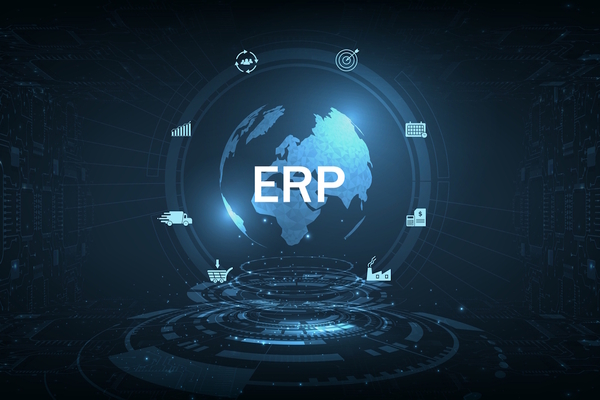Digitising commercial mortgages

Joman Kwong at Laserfiche describes how commercial mortgages are entering the 21st century
Obtaining a commercial mortgage, or ‘business mortgage’ as it is also known, can be immensely challenging for all involved. The loan application process, which usually involves slow and repetitive communication cycles, can be particularly burdensome.
For business owners, purchasing property or land for commercial use is one of the most expensive investments they can make. The knock-on effect is that pressure on mortgage providers to deliver a smooth and supportive service is intense. The larger the financial decision, the higher the pressure on the provider.
The majority of commercial mortgages take four to eight weeks from initial application to the release of funds. Yet outdated processes and disjointed digital systems are making an already arduous process even more frustrating. Ambitious business owners who are working to tight timeframes don’t have the time or patience to deal with delays, miscommunications, or uncertainty.
Thankfully, cutting-edge technologies, from AI to hyperautomation, are making significant progress in tackling these pain points. The mortgage system began in the 12th century, but it doesn’t need to stay there. In 2024, there are a range of technologies available to help commercial lenders streamline processes, ensure regulatory compliance, and improve the levels of service they provide to business owners.
Hyperautomation and integration
Because the commercial loan market serves business entities, real estate developers, and other organisations with specific needs, the loan application process is often more complex and varied. Financial institutions can leverage hyperautomation and AI to offer a more tailored approach to both new prospects and existing customers, further driving efficiency and growth.
Hyperautomation is a business-driven, disciplined approach that organisations use to rapidly identify, vet, and automate as many business and IT processes as possible.
For example, commercial loan borrowers often provide extensive documentation related to business operations, financial health, and other factors. The process of obtaining a mortgage is still laden with cumbersome activities such as verification of a business’s revenue, and document collection, many of which must be performed multiple times because of a lack of data integration. AI-driven tools, when integrated into a hyper-automation approach, can streamline data collection with enhanced accuracy and reduced errors.
These tools not only improve information verification, but also speed up due diligence and fraud detection processes. Streamlining these processes can lead to expedited underwriting, and more seamless reviews and approvals - crucial competitive differentiators in a fast-moving commercial real estate market.
Intelligent technologies enable loan brokers or lenders to collect customer information accurately from the start. With key systems integrated seamlessly, real-time customer information is synchronised across systems, creating a frictionless experience for both employees and customers. For example, customer information can be pre-populated in subsequent forms to reduce manual data entry. Customers are kept informed of the latest progress, can easily reach out to the AI chatbot for inquiries, or make service requests through digital forms anytime, anywhere.
Meanwhile, organisations can maintain a single source of truth, mitigating the risks associated with having data stored in multiple locations.
Lenders need a unified view of data
Loan brokers and lenders in the UK are increasingly subject to a wide range of compliance regulations, including GDPR and the Consumer Credit Act. Ensuring compliance is more vital than ever before as failure to meet regulations can result in hefty fines, disruption across the business, and issues with customer retention.
Organisations need to ensure that all relevant documents across business-critical systems are stored in one secure location where they are easily accessible and retrievable, and that they are kept up-to-date and accurate. When critical back-end processes aren’t streamlined, it’s easy for critical documents to be misplaced. Customers are left waiting as employees scramble to deal with the manual collection, retention, and disposal of customer data.
Record management systems can be a huge help here because they bring lenders’ critical and sensitive data under one ‘umbrella’. Features such as audit trails, version control, tagging, document history and system activity simplify compliance processes.
Additionally, a view-only repository can be easily established for tax authority to process audits or compliance checks, enhancing transparency and accountability. This will be critical into 2025, as mortgage lenders will likely need to provide increased levels of transparency when it comes to their financial data.
A digital future for mortgages
As ‘digital-first’ lenders inevitably increase in popularity, traditional commercial lenders will need to re-invent their approach to mortgage application processes if they are to retain a competitive edge.
Tools such as AI and hyperautomation are establishing better dialogue between businesses and lenders, where real-time customer information, connected across systems, creates more frictionless experiences for both employees and customers. When lenders empower themselves with clear insights to supercharge how they organise, access, and manage data, they will be well-equipped to provide more efficient, intuitive services in years to come.
It’s not just customers that will feel the benefits. By rolling out a record management tool, commercial lenders can make pivotal adjustments to address emerging regulations as and when they occur. This level of flexibility will be increasingly critical now and into 2025 as industry compliance rules shift unpredictably.
While it’s not always possible to eliminate every bump in the road, the introduction of digital tools will help make the journey towards attaining a commercial mortgage significantly smoother.
Joman Kwong is Strategic Solutions Manager, Financial Services, at Laserfiche
Main image courtesy of iStockPhoto.com and jaturonoofer

Business Reporter Team
Most Viewed
Winston House, 3rd Floor, Units 306-309, 2-4 Dollis Park, London, N3 1HF
23-29 Hendon Lane, London, N3 1RT
020 8349 4363
© 2025, Lyonsdown Limited. Business Reporter® is a registered trademark of Lyonsdown Ltd. VAT registration number: 830519543





